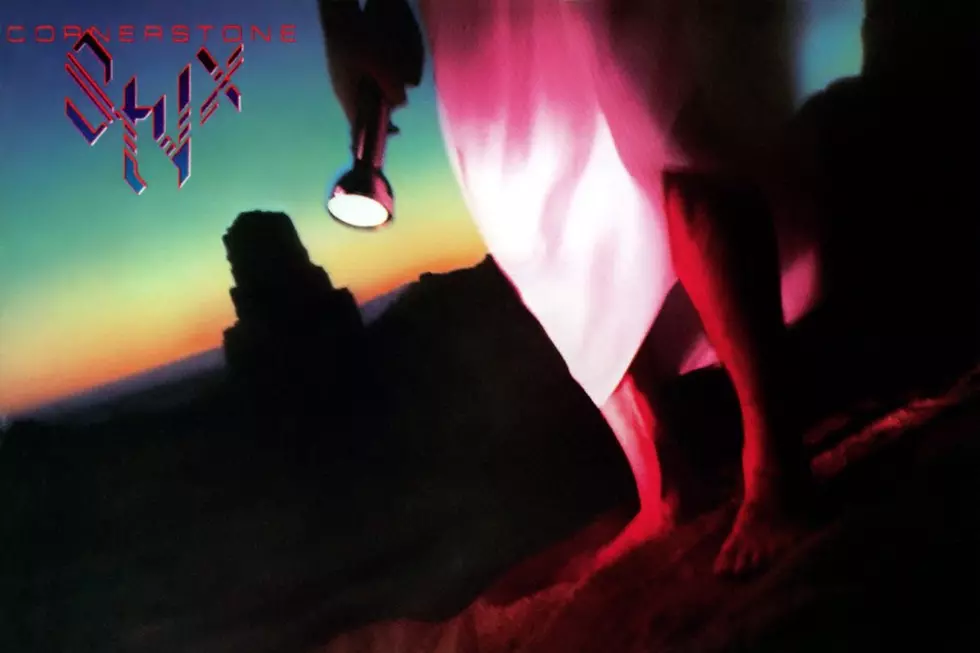
Why Styx’s ‘Cornerstone’ Was So Much More Than Its Hit Ballad
Styx laid down the Cornerstone in October 1979 for what they hoped would be a brand new phase in a career that had already been underway for nearly a decade.
In doing so, they took the calculated risk of simplifying their oft-times highbrow material with pop-rock ingredients. This caused consternation among some die-hard fans, but it also led to the embrace of countless new ones.
Whatever side of the debate you may stand on, you really can’t fault Styx for going there. After all, the Chicago-spawned quintet had achieved multi-platinum status on their own terms with previous art-rock efforts like The Grand Illusion and Pieces of Eight – their seventh and eighth studio LPs, respectively – while enduring the abuse levied at them by some critics.
Cornerstone wouldn’t solve that pesky little conundrum, but it would allow Styx’s stalwart cadre of songwriter-vocalists — Dennis DeYoung, Tommy Shaw and James "JY" Young — an opportunity to stretch their songwriting talents and test the possibilities of mainstream radio.
So they threw themselves into the task at hand and duly filled Cornerstone to the brim with songs like "Why Me," "Never Say Never," "Eddie" and "Love in the Midnight," which notably dispensed with any hint of the complicated arrangements or cerebral wordplay found on prior efforts. Instead, these tunes injected Styx’s familiar hard-rock foundation and instrumental prowess (underscored by the rhythm section of twins John and Chuck Panozzo) with incrementally catchy choruses, gorgeous three-part harmonies, loads of bright synthesizers and even saxophones.
Yet all this was merely the beginning for Shaw and DeYoung, both of whom decided to try some new directions. For Shaw, this meant whipping out a mandolin and breaking things down to a folky and philosophical level on "Boat on the River," featuring DeYoung on accordion and Chuck Panozzo on double bass.
DeYoung, meanwhile, applied his crystal-clear tenor to a birthday love letter to his wife Suzanne called "Babe," which promptly shot to No. 1 on the Billboard Hot 100. But at what price?
The actual backlash from the band’s prog-rock fan base was altogether mild at the time, and both JY and Shaw lobbied for the song’s inclusion. Still, "Babe" has since been unfairly singled out as the first sign of their eventual fall from grace.
Despite the rest of the quality song craft on display, "Babe" became the album's defining song. But dig deeper and you'll find this was – as promised – a Cornerstone release for Styx.
The Most Awesome Live Album From Every Rock Legend
Real-Life ‘Spinal Tap’ Stories: Styx
More From Ultimate Classic Rock









